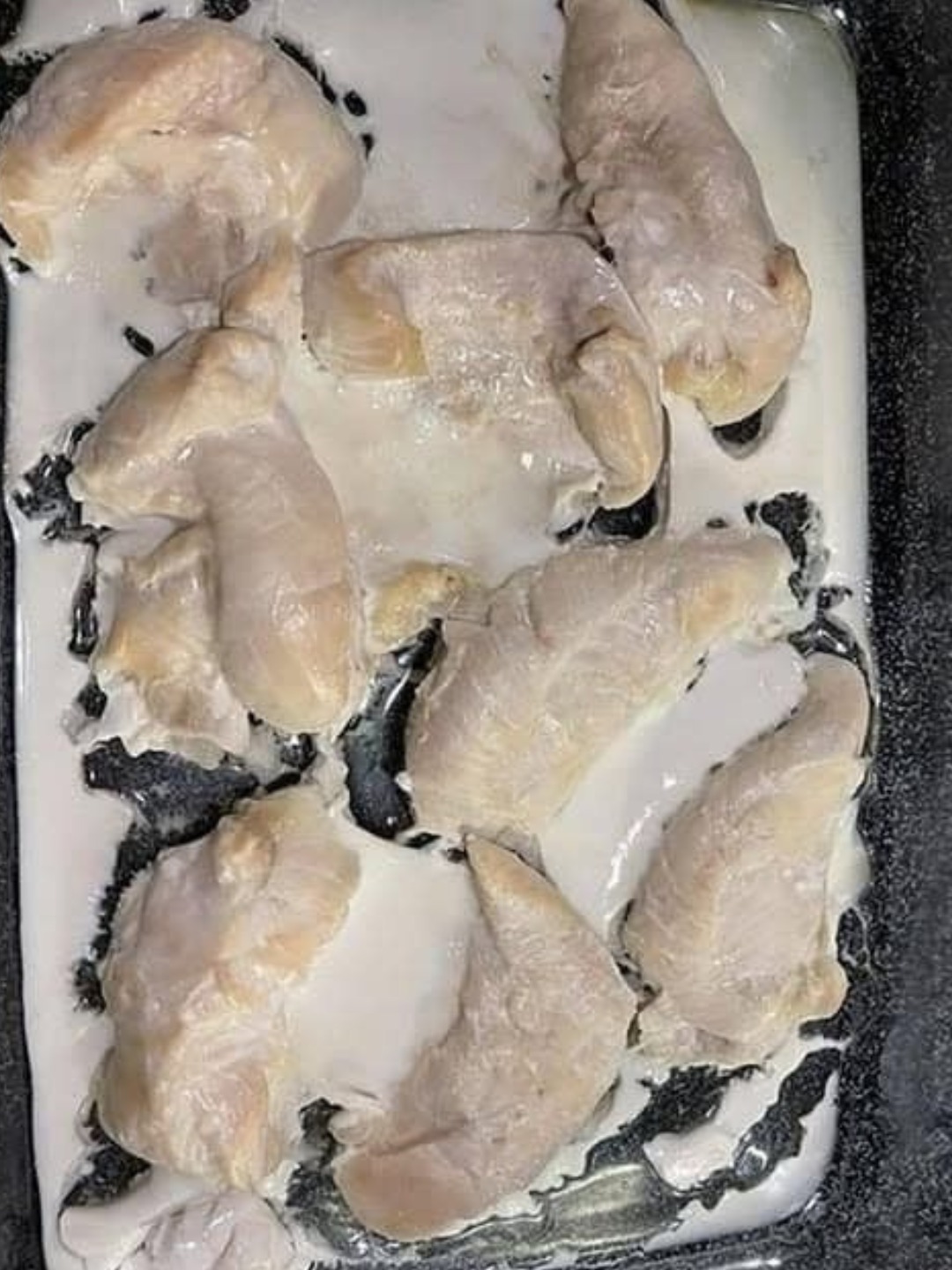The Truth About That White Goo That Comes Out When Cooking Chicken
Have you ever noticed a pale, sticky-looking substance oozing from chicken while it cooks — especially when boiling or baking?
It may look unappetizing, but there’s no need to worry.
That white goo isn’t harmful fat or chemicals — it’s actually a natural protein called albumin , and understanding what it is can help you cook better-tasting, more visually appealing chicken every time.Let’s break down the science behind this kitchen mystery — and how to reduce its appearance without compromising flavor or safety.🥩 What Is the White Substance on Cooking Chicken?
The white, slightly slimy liquid you see rising to the surface as chicken cooks is mostly albumin — a type of protein found in muscle tissue .
When chicken heats up, the proteins denature (unfold) and contract, forcing out moisture that carries these proteins to the surface. As the albumin cooks, it turns white and coagulates, creating that milky residue.
This phenomenon is most noticeable in:
Chicken breasts
Boneless, skinless cuts
Boiled or poached chicken
It’s not exclusive to chicken — similar protein discharge occurs in fish and other meats — but it’s more visible due to the light color of poultry.
Why Does It Happen? The Science Behind the Goo
Two main things happen when you cook chicken:
1. Protein Denaturation
Heat causes the structure of proteins like albumin and myosin to change shape — much like how eggs turn from clear to white when cooked.
This process starts around 140°F (60°C) , and once it begins, those proteins begin to separate from the meat and rise to the surface.
2. Moisture Loss
As chicken cooks, the muscle fibers contract , squeezing out water and dissolved proteins.In moist cooking methods like simmering, boiling, or baking, the escaped moisture sits on top of the chicken, making the goo more visible.
In dry-heat methods like grilling or pan-searing, the moisture evaporates quickly — so the goo is less noticeable.
Is This Goo Dangerous or a Sign of Spoilage?
Absolutely not.
SEE NEXT PAGE
ADVERTISEMENT

